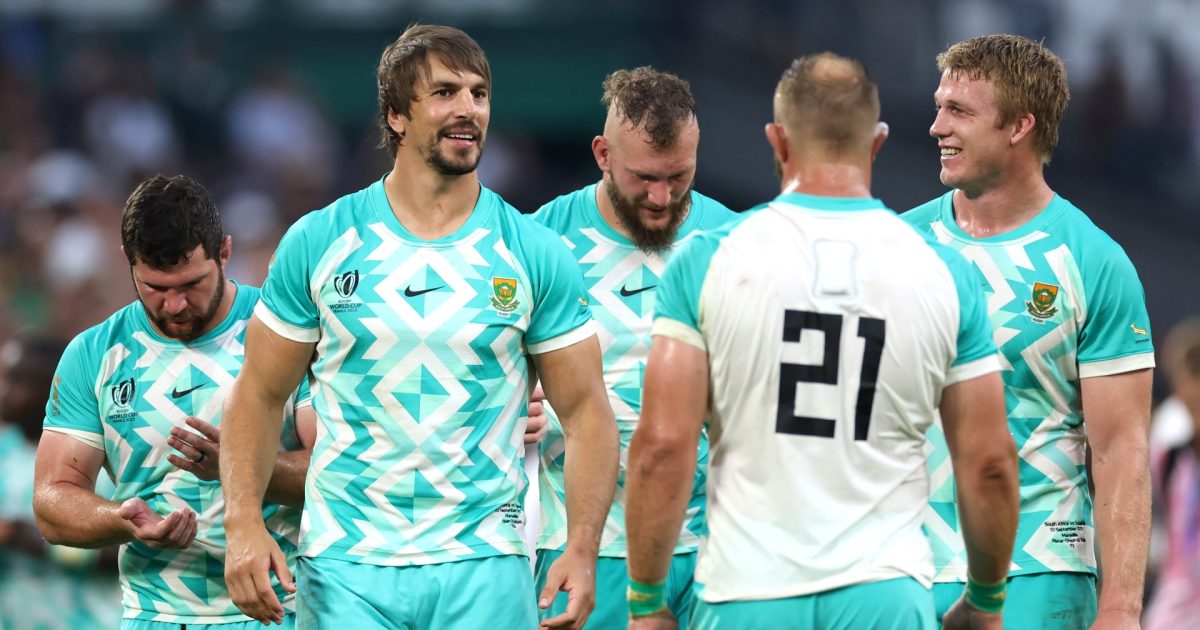Springboks on verge of multi-million dollar investment deal

The Springboks brand could be taken to new heights with the news that the South African Rugby Union (SARU) is on the verge of completing a multi-million dollar investment with American sports company Ackerley Partners.
In a statement released by the Ackerley Sports Group (ASG) on Thursday, the company confirmed that they are negotiating a partnership agreement to invest in South African rugby at all levels, supporting the professional game, and growing the revenue base of the Springboks and SARU’s commercial activities.
The statement revealed that ASG will invest in a Commercial Rights Corporation (CRC), which will hold all current and future revenue-generating assets of the Springboks and SARU. CRC will be majority-owned by SARU, with ASG taking a significant minority interest.
While ASG has not released the in-depth specifics of the deal, a United States media outlet Sportica reported that Ackerley Partners is poised to invest $75 million (R1.4 billion) in the governing body SARU.
Sportica also reported that SARU will be the majority owner of the new entity, while ASG will hold a roughly 20 percent stake, implying a total business valuation of £300 million.
The media outlet added that the deal is expected to be finalised in May pending the approval of SARU members.
Co-founder Ted Ackerley said that ASG intends to expand the Springboks’ global reach.
“We are excited to partner with a legendary global sports franchise like the Springboks,” said Ted Ackerley, Co-Founder of Ackerley Sports Group.
“Our collaboration will establish a worldwide expansion of the most iconic brand in rugby.
“This investment in the Springboks represents a unique opportunity for us to match the on-field success of the team with the resources needed to establish and sustain the franchise as a global powerhouse.
“We will bring decades of experience and passion for excellence with us while listening carefully to the people of South Africa to ensure that this team continues to reflect the history and culture of this amazing country.”
With the 2031 World Cup heading to the United States, a deal like this will be a major benefit for the Springboks.
There have been reports that SARU was in talks with Six Nations partners CVC Capital Partners.
However, those negotiations appear to have halted.

























Firstly, the Springbok team is not a “franchise” 🤮🤮🤮 that is a major red flag already, surely?
It will be great if this investment could somehow reach union and club level and, e.g., help WP get its act together, or provide a better path to professionalism for young club/Varsity Cup stars.
But American investment in non-American sport has a history of going disastrously, e.g. in football, Man United and Liverpool at one stage.
Not to mention, large amounts of money floating around a South African sports organisation that is overseen by a kleptocratic government… what could possibly go wrong??
The article talks to the funds being used for all levels. Which is a positive. I’m less hesitant if the cash goes towards the Junior Boks and women’s game.
Besides, we’re sure not getting R1,4bil assistance from the department of sports, art and culture.
The old codgers keeping the boks out of the 6N probably necessitated this too. That cash inflow not going to happen now.
that said, if their first decision is to throw all the aqua fresh kits in the bin, then I’m on board!
CVC has a less than 20% stake in 6N. It’s happening all over.
However, the money is welcome surely in this climate.
Can’t wait for US private equity to screw up Springbok rugby….hello 200US$
tickets and 150US$ jerseys
hour long breaks during half time to allow for lots of “commercials”
Yep, that will be both NZ and SA rugby sold out to the popcorn devil. They will be unrecognisable within a decade and totally in thrall to the whims of rugby-ignorant U.S. paymasters